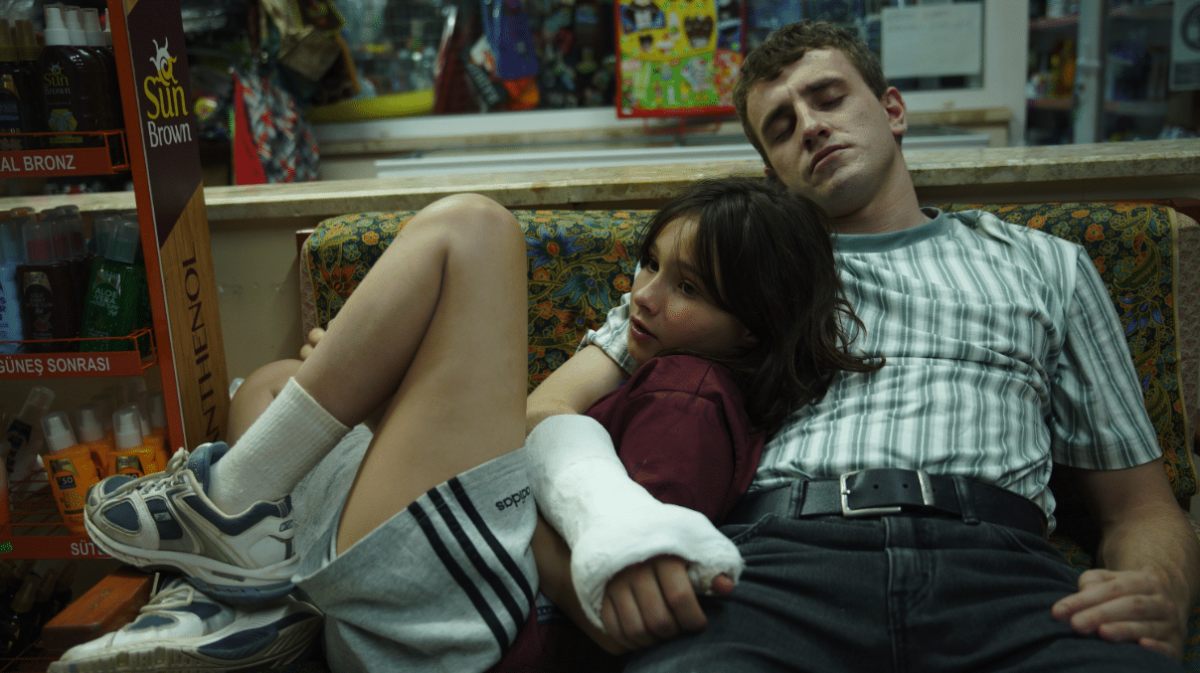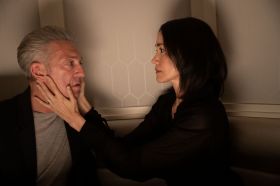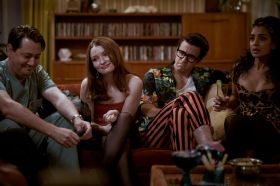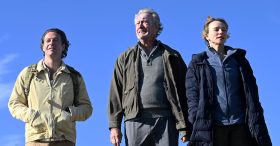It’s the late 90s, and Calum (Paul Mescal) and his daughter Sophie (first-timer Francesca Corio) are on holiday in Turkey. They’re Scottish, though he’s now living in London away from Sophie’s mum, and the sun is a constant threat as they sprawl by the pool at a cheap resort that doesn’t quite live up to the brochure.
Calum does some Tai Chi, waving around his wrist in a cast. Sophie plays with a video camera, not always managing to focus on her subject. And the now-adult Sophie (Celia Rowlson-Hall) is looking back through those blurry, shaky recordings, searching for something lurking under the surface that she missed as a child.
Aftersun is about recollection, not mining twists from memory’s quirks. Some scenes involve Sophie’s holiday video; most just present the events of her past without context or filter. There’s little sense of a disconnect between Sophie’s memories and what happened, no repeated scenes where she remembers things one way then the other. It’s time that provides the context here. When she was a child, she focused on herself. Looking back, it’s her father that’s the mystery.
The slow dread around Calum builds remorselessly, even before the scenes (which Sophie isn’t present for and couldn’t be remembering) showing him struggling. He’s a young man – at one point he’s confused for Sophie’s brother – but he carries himself like someone whose best years are behind him. There are money troubles, a sense of aimlessness about his home life, mysterious bruises. He gets angry when she asks him where he expected to be at his age now.
It’s the way his world and hers overlap that gives Aftersun its powerful impact, a holograph made from two differing images. She’s having a fun time (mostly), playing with older kids, still a child but looking towards a future she can almost touch. He’s a good dad and he’s trying his best to be there for her, but it feels like his story has already come to an end.
Writer-director Charlotte Wells brings a lightness of touch to just about every element of this film. Nothing here feels forced; the heavy burden of Sophie’s present day searching is presented in brief flashes of a packed dance floor, a dreamlike searching for her father in a crowd. On one level Aftersun is literally ‘what I did on my holidays’ presented with a vivid, almost documentary sense of time and place. It’s enthralling even when it’s rug shopping or losing goggles during a diving expedition.
Mounting anxiety aside, this has plenty of moments of fun and good times (plus a soundtrack packed with 90s classics), and Corio is excellent as an eleven-year-old enjoying herself on a holiday that – in hindsight – is shabby enough to create a lot of warm memories around events that weren’t quite right. The relationship between father and daughter feels utterly real in every changing moment, sometimes at cross purposes, sometimes bored, sometimes as close as two people can be.
It’s up to Mescal to provide the shadows that pass across the constant sun, playing a man who’s doing a good enough job to fool his daughter but not the woman she’s become. It’s a brilliantly devastating performance, heart-breaking and frustrating in turn as a man who’s easy to read and unknowable all at once.
This is too well crafted to nail down a message; the overwhelming takeaway is one of loss, sharpened by things the film gestures towards but doesn’t reveal. Time takes everything away from all of us, but memories last longer than most things. Aftersun contains multitudes, including Chumbawumba’s ‘Tubthumping’. Sometimes when you get knocked down, all you can do is try to figure out what happened.
Aftersun is in cinemas now.
Actors:
Director:
Format: Movie
Country:
Release:





